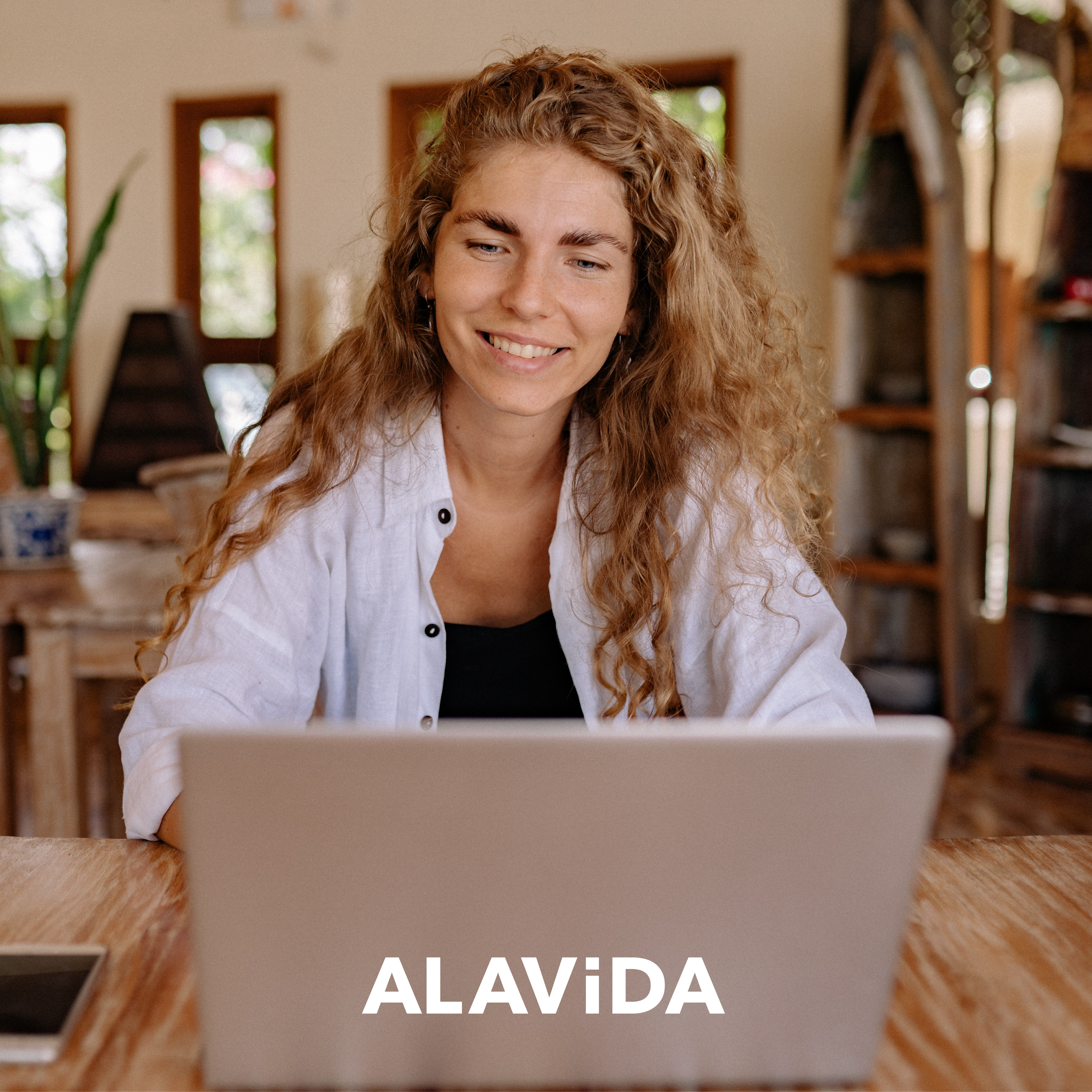Lessons from Our Clients

A testimony
The most challenging experiences in life rarely come with a road map, and with recovery, there is a layer of vulnerability that can come with seeking support for substance use. You may wonder if the path you have chosen will work—and what others will think. We wanted to give you the inside scoop with the hope that insights from ALAViDA clients might steady your compass as you embark on your recovery journey.
Experiencing Self-Doubt

One thing’s for certain, it can be easy to doubt yourself in recovery. Those who have been through it suggest that you fight the urge to succumb to those clingy thoughts that make you want to give up. The pace of change is unpredictable. Your brain feels foggy. Your impulsive drive is charged. Just when you’re ready to give up, you might meet with your first breakthrough.
During moments of self-doubt, remind yourself to stay the course, trust the system and the method, and give yourself time.
Shelley Prokop is an ALAViDA client who experienced the rewards of sticking with the program:
“I need to start by saying I had gone through two AA based treatment centres. I wanted sobriety so badly, but the shame and guilt based program was harsh. Those 12 steps were not going to work for me—I could not say I was powerless!
I watched a news story on ALAViDA, I had already read the Sinclair Method book, so excitedly I phoned. This was a program I could participate in from home! I started the program exactly one year ago. I had a Zoom appointment with a doctor and therapist; soon after, I started naltrexone and the daily journal. The program was gentle and positive, I wasn’t rushed like I had experienced before. The counselling I received was refreshing and on point, I always felt heard and understood, I immediately felt safe and supported.”
Being Proactive Instead of Reactive

It can be hard to know the value of a journey without perspective. When we’re in the midst of an up or a down, it feels like time is suspended. You feel like you’re the only one. ALAViDA clients talk about the myths related to seeking treatment and one of the most profound ones is that you should only reach for help when you hit rock bottom. Clients who had been through treatment thought about it differently.
They asked themselves, “If you could get help before things were at their worst, wouldn’t you?”
Not only would this save you from struggling, but it would also protect neural pathways. When using a substance, the structure of our brains will change as we flood them with dopamine, a pleasure chemical. Over time, our brains become used to receiving high levels of dopamine and cause us to constantly want that feeling. Essentially, substance use effectively takes your prefrontal cortex, the place of “executive function” in your brain, offline. This can add a barrier to making logical decisions. Becoming more aware of how substance use affects our cognitive abilities can prompt us to take action. This is the benefit of a proactive approach as opposed to a reactive approach. If we don’t attend to our ups and downs, they become exacerbated.

Recognizing Patterns
Anyone with a substance use problem knows how easy it is for others to make judgments about behaviours from the outside. What can be harder is noticing internal changes. When we do notice changes in our behaviour and examine the reason, it makes us more equipped to stop the cycle or to make better sense of our patterns for next time. Just like a sore throat can be a marker that you might be getting a virus, there are signals that your drinking or using behaviour may be getting out of hand. When you catch a virus early and take care of yourself or seek treatment, you often heal faster. The same is true of addiction. Like catching a sore throat, you might recognize that a certain group of friends you make plans with typically prompt you to engage in substance use. Recognizing the changes in our behaviour and understanding why they happen are some important steps in creating change.
Shelley developed enough insight about her patterns to become abstinent, and she continues to monitor them today:
“By December I had reduced enough to simply quit, having the doctors reassurance that I would not go through withdrawal. I did just that. I keep naltrexone on hand in case I find myself thinking of a drink but that hasn’t happened yet, if it does I now know how to deal with it. The journal is a vital part for me. It takes only a few minutes to do every morning, and I go back to read where I was emotionally last week or last month. Doing this plus the counselling has kept me moving forward to finding the inner peace I had been looking for, what an exciting journey!
Alavida has changed the way I look at life and alcohol! Emotionally I am the strongest I have ever been, I am in control, certainly not powerless.
Thank you Alavida for guiding me to find myself again.
Forever Grateful,
Shelley Prokop”
Getting help can feel overwhelming, shameful, or defeating, but taking the first step and sticking with it makes all the difference.
Access the ALAViDA TRAiL app.